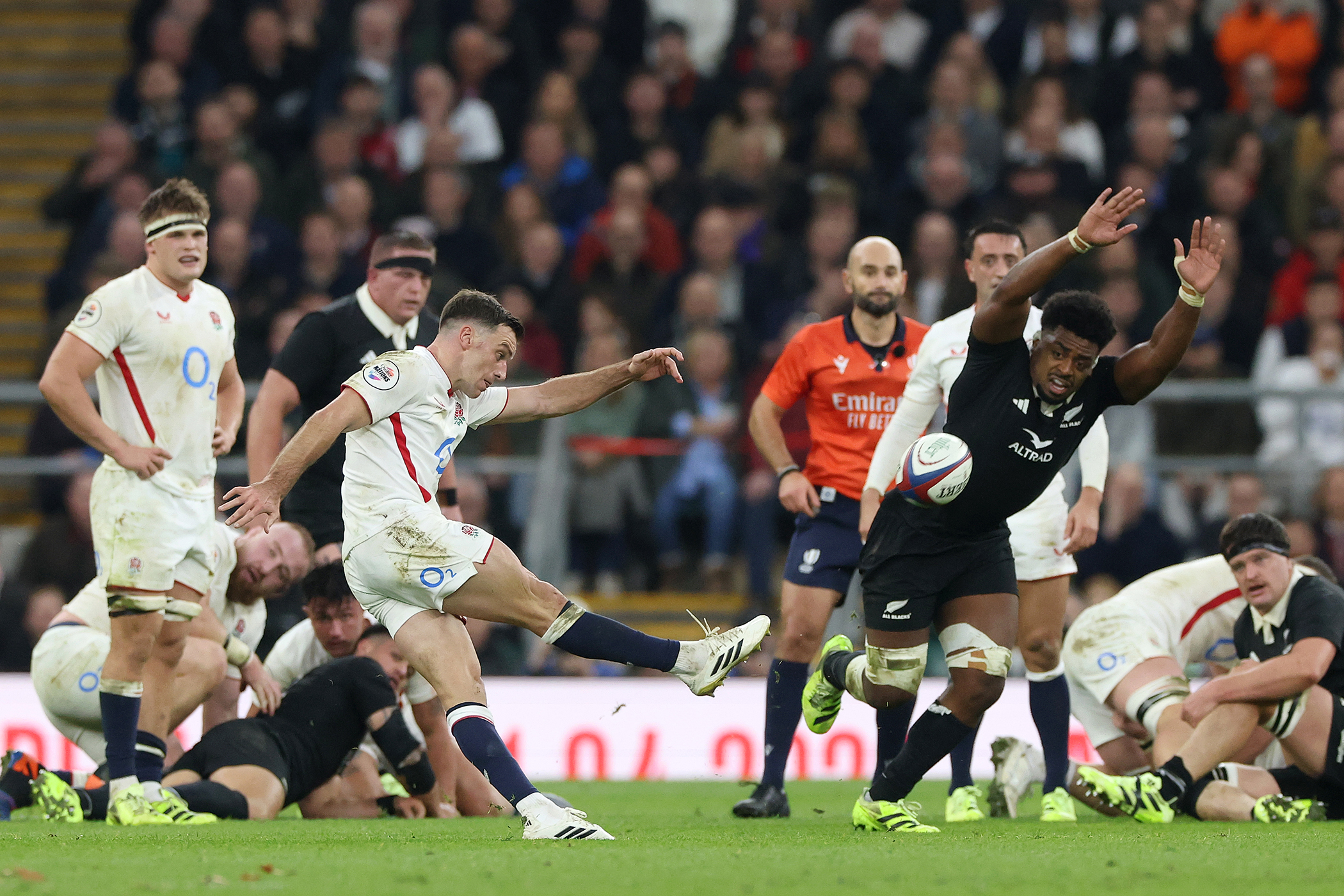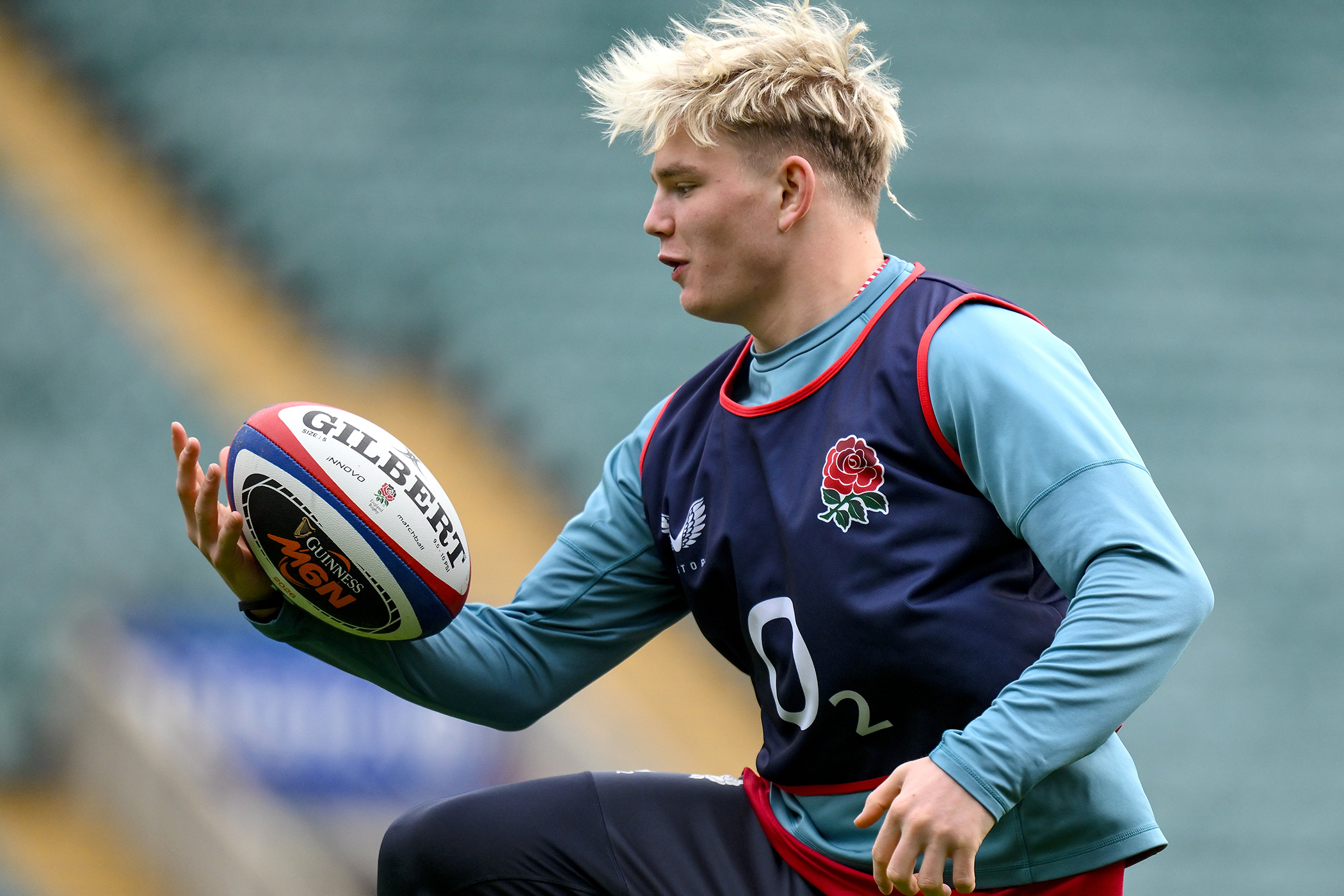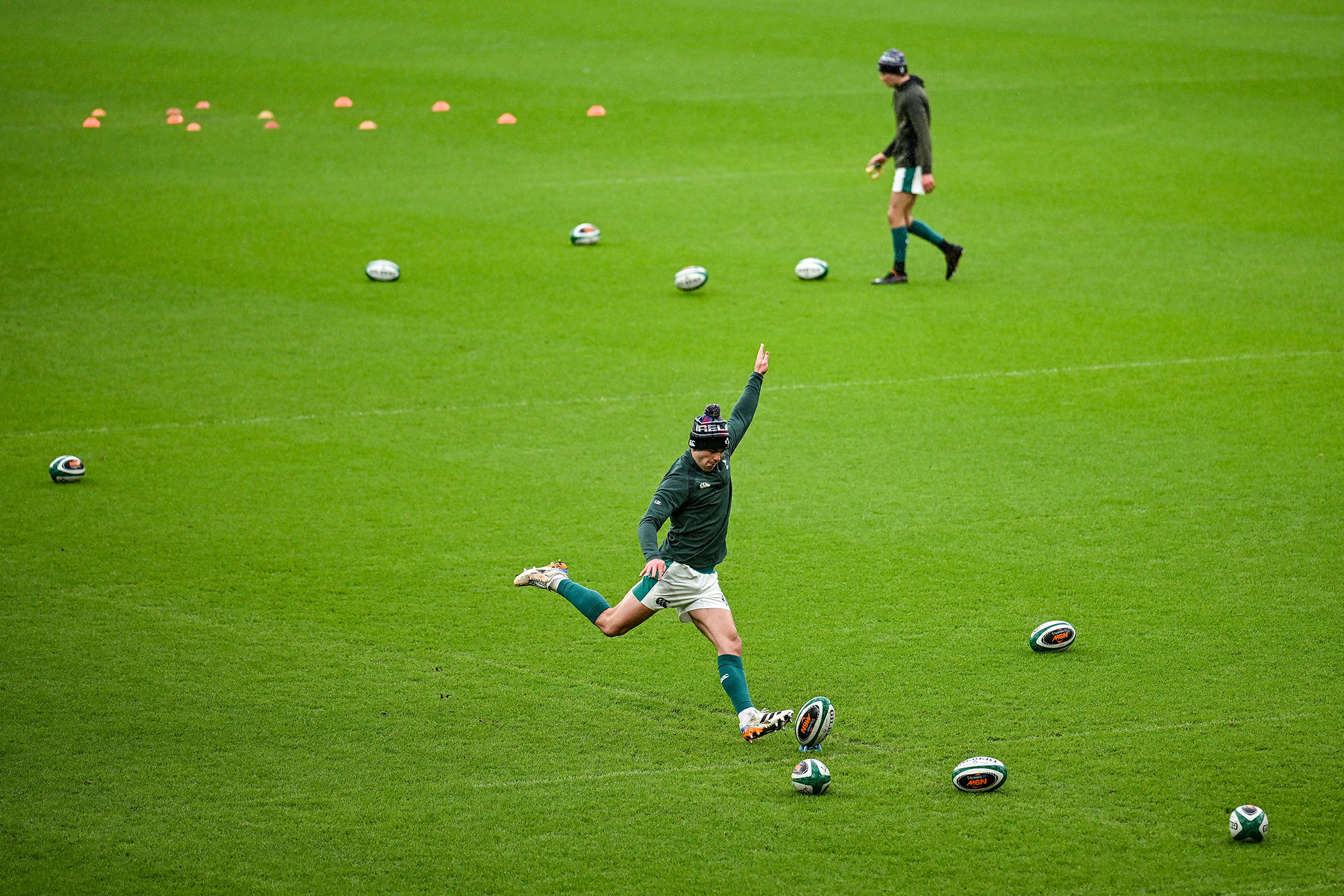There have been times when England’s rugby union team have felt hard to watch and tough to understand – an endless development cycle. But they were onto something all along. With a crushing 33-19 win over New Zealand, they were thrilling to watch and easy to understand.
A ‘gradualist’ project for much of Steve Borthwick’s time as manager, England have finally arrived, breaking the syndrome that made New Zealand daunting opponents for so long, and turning ‘promise’ into delivery.
To celebrate, Henry Pollock, who looks like the young athlete Boris Johnson would love to have been, threw his shorts into the crowd, after celebrating penalties as if he had won the lottery, with clenched fist and ecstatic expression. For the opposition he’s as annoying as Boris Johnson too. But the mad exuberance was in tune with the feelings of a crowd who watched New Zealand go 12-0 up and braced themselves for another anticlimax. Instead, their darlings replied with 25 unanswered points to take control.
Eternal lustre attaches itself to England teams who beat New Zealand. There were only eight of them in 120 years before this shellacking of the All Blacks.
The previous wins had come in 1936 (twice), 1973, 1983, 1993, 2002, 2003, 2012 and 2019. Only once in their previous 11 meetings had England come out on top.
But many of those margins had been tight – especially in their three clashes last year. The All Blacks won those 16-15, 24-17 and 24-22: defeats that were part of a nearly-men pattern that England were desperate to shake off.
All games tell you something. Some tell you everything. This one said that England can now have realistic hopes of competing with South Africa, the supreme force in world rugby.
Twelve months ago Steve Borthwick’s team posted seven defeats in 12 games, including five in a row, and slipped to seven in the world rankings. Borthwick was told that he needed to win four games at the following Six Nations Championship – and did so, as signs of promise poked through.
Yet the Borthwick promise of jam-eventually was straining the patience of the Twickenham regulars who roared in disbelief at the scale and drama of this victory. England’s current 10-game winning streak is their longest since the 2015-2017 run of 18 straight victories.
And at the heart of it was a veteran who has measured out his life in New Zealand games. George Ford was instrumental in the finest performance of the Eddie Jones era – the 2019 World Cup semi-final win in Japan, in which he kicked four penalties in a 19-7 victory. But since then Ford has struggled against flashier stand-offs in team selection and has largely been used only as a safe bet.
Newsletters
Choose the newsletters you want to receive
View more
For information about how The Observer protects your data, read our Privacy Policy
His two drop goals before half-time reduced New Zealand’s lead to 12-11, but more importantly seemed to ignite England’s imagination. Ford, 32, had missed a late drop goal in the 24-22 defeat to the All Blacks here last year and had amends to make. The game’s best player, Ford displayed all the virtues of seniority and experience, in a team back-loaded with a slew of big-name second-half substitutions.
The fabled ‘Pom squad’ of replacements played their part – but for once it wasn’t a rescue mission. After the rash of near misses in 2024, Borthwick started with Tom Curry, Ellis Genge and Pollock on the bench. Pollock’s gurning and fist-pumping brought a splash of energy and spirit. When Ford was tackled in the air and stayed down, it was Pollock, of course, who pulled him back up.
The inversion of ancient team selection lore, where you went with your best starting line-up and freshened it over the final 20-30 minutes, is an intriguing trend. Data indicates that the human body can’t sustain the levels needed in some positions over an hour and 20 minutes.
Coaching has surrendered to science to create not a single game of 80 minutes but Game A and Game B, with rotated casts. The theory in its modern form was conceived by the Springboks – the world champions England now have an improved chance of dethroning.
This isn’t an All Black side to chill the blood. It calculates and executes to minimum New Zealand levels, but there isn’t the sense that they can humiliate you.
Borthwick said that what pleased him most about his players was “how composed they were. It’s a team that’s developing, a team that’s growing, a team that needs experience. I hope south-west London is a good place for England supporters to be tonight.”
England still have Argentina to play this autumn, but the psychological lift from emulating the 2019 side ought to carry them through the Six Nations and the next World Cup cycle. All the narrow defeats gave birth to a mantra about “learning” from painful experiences, but for some teams that’s just self-protecting rhetoric. The catharsis never comes.
Borthwick’s England have been data-driven and pragmatic, without a clear identity. But 10 straight wins suggest that there was an underlying plan after all. Borthwick’s risky team selection and game management here were vindicated. Last year people were after his blood. “I was criticised?” he joked after this match.
Captain Maro Itoje addressed the team on the morning of the game and asked them to play with the intensity of their 14 or 15-year-old selves dreaming of playing for England. They did, and England did something precious. They repaid a lot of patience – and they really did entertain.
Photograph by David Rogers/Getty Images



